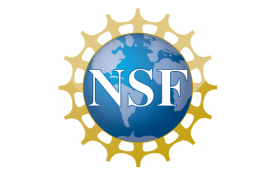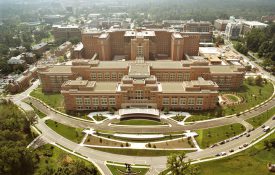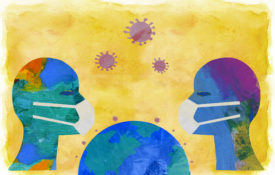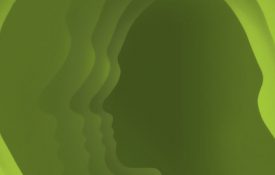-

Last Chance: Apply for NSF Faculty Early Development (CAREER) Program
The National Science Foundation (NSF) has extended the deadline to apply for its Faculty Early Development (CAREER) program from July 27 to August 11, 2020.
-

National Institute on Drug Abuse Requests Feedback on New Strategic Plan
As a psychological scientist, this is a critical opportunity to make your voice heard at one of the world’s top funders of research psychology. APS recommends that you consider offering comments for NIDA’s consideration.
-

Mapping the Moods of COVID-19: Global Study Uses Data Visualization to Track Psychological Responses, Identify Targets for Intervention
More than 60,000 participants have participated in a global study to investigate the psychological implications of the COVID-19 pandemic. [July 17, 2020]
-

New Content from Advances in Methods and Practices in Psychological Science
A sample of articles on Bayesian Model Averaging, the “crud factor,” a tool for model checking, and an attempted replication of the Att-SNARC effect.
-
This Stanford Scientist Can Make You Feel And Think Younger: Interview With Dr. Laura Carstensen
Have you ever wondered about aging and how to stop it? Would you like to do something about it? Regardless of where you are in life it is worthwhile learning about the field of geroscience and staying atop of the news and recent developments. I have been studying aging for over 17 years, and looking back I can say with confidence that the progress in the biology of aging and even in longevity medicine is rapidly accelerating. Since 2010 we saw a revolution in aging biomarkers dubbed “aging clocks”, senolytics, NAD+ boosters, rapalogs, cellular reprogramming, gene therapy, and many other fields.
-
Social Isolation May Increase Susceptibility to Covid-19, Scientist Claims
The psychological stress of social isolation may make people more susceptible to severe Covid-19 infection, a US scientist has claimed. Dr Sheldon Cohen, who is a psychology professor at Carnegie Mellon University in Pennsylvania, said evidence from his previous research suggests social stressors are linked to an increased vulnerability to upper respiratory viruses, such as those which cause common cold. He believes there is a possibility that the psychological effect of stay-at-home measures, adopted by countries around the world to slow down the spread of the virus by minimising contact between people, might play a similar role by increasing a person’s susceptibility to Covid-19 illness.

